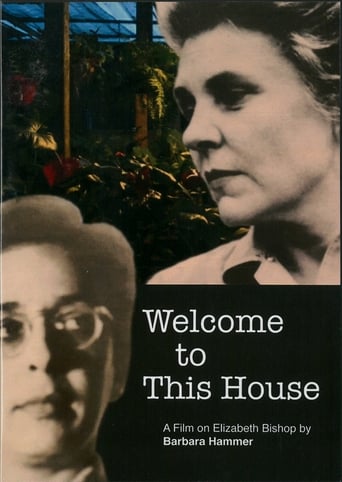

I was hoping to see a movie about the poet Elizabeth Bishop: her poetry, who and what influenced her, how she influenced others, the greatness of her work and how she evolved as a poet and a person. I expected biographical details that would fill out the arc of her life. But this film is exactly what the tag line says it is, "a feature documentary film on the homes and loves of poet Elizabeth Bishop." It is literally about the houses that she lived in, and her lovers. Her homes were beautiful and her lovers interesting. I can't fault the movie for not being a rich and in-depth biographical documentary of a great poet. It did deliver what it said it would, but not what I wanted to see.
... View MoreElizabeth Bishop (1911-79) was elected Poet Laureate and won several prizes for her poetry. She had received the ultimate honor of having her work published by the Library of America.Barbara Hammer's documentary purports to tell her life-story through visiting her various homes in Canada, Brazil and the United States. We learn about Bishop's traumatic childhood, with a mother confined to a mental institution, that left the young Elizabeth perpetually in search of the stability suggested by "home." We learn of the poet's gradual discovery of her sexuality, and how she experienced several doomed love-affairs. We also learn about her traumatic life, especially in the years spent in Brazil, where she became an alcoholic. On returning to the United States, she taught at Harvard University and had another long-term relationship. Always a vigorous woman, her health gradually declined until her premature death at the age of sixty-eight.Yet the documentary does not tell us much about Bishop's personality, other than the fact that she was a rather unpleasant woman who wrote great poetry. We do not really understand how and why her sexuality informed her writing; nor do we find much about why her life appeared so torturous. Rather director Hammer focuses on the superficialities of her subject's life - for example, her love of antiques, and her desire to take objects from one house into another.Matters are not helped by Joan La Barbara's rather intrusive score, which tries to invest Bishop's life with a sense of mystery but succeeds only in becoming rather irritating. It would have been much more useful to have put some of Bishop's poetry up on screen, or to have had someone reading it direct to camera, so that we could understand what a proficient word-smith she actually was, with a unique ability to capture a feeling with a mot juste.The narrative unfolds incredibly slowly, with too much focus on ostentatious dissolves or on someone acting the role of the older Bishop, without actually speaking. Although only seventy-six minutes long, we feel that the story could have been told more economically in a shorter running-time.
... View More